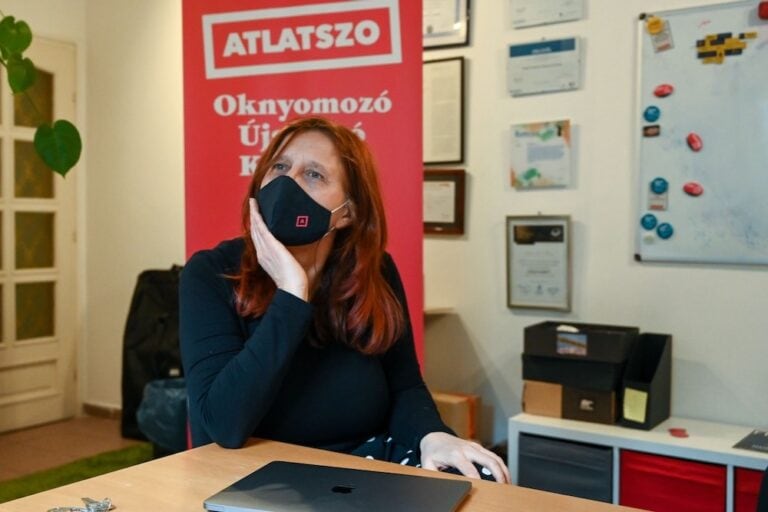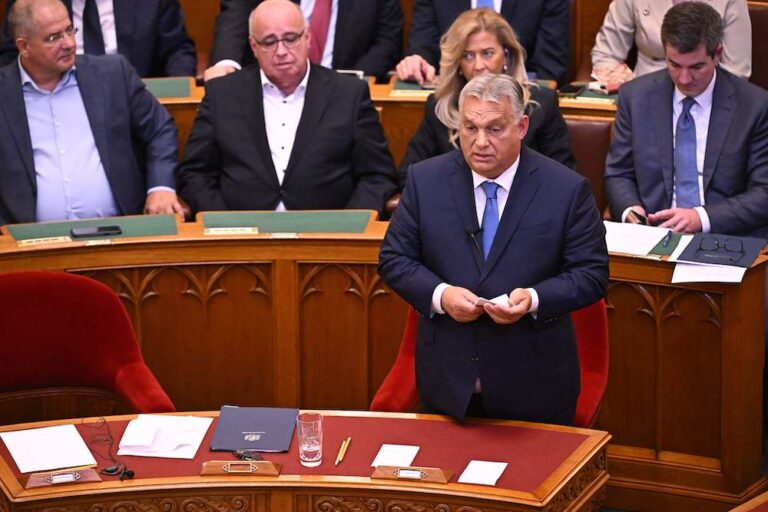After a recent visit to Budapest, the rights organisation warns the restrictions on media freedom pose a "clear danger to the EU's values".
(Human Rights Watch/IFEX) – Brussels, February 16, 2012 – The shrinking space for media freedom in Hungary requires EU action, Human Rights Watch said in a Memo on Media Freedom in Hungary released today.
The 11-page memo is based on a recent research visit to Budapest by Human Rights Watch. It documents lack of independence by the Media Council, the main body that regulates the media, evidenced by its decision to cancel the license of a leading independent radio station, self-censorship by independent media outlets, and political influence in public television, in violation of international and EU law.
“Media freedom is under real threat in Hungary today, and the ruling party is responsible,” said Benjamin Ward, deputy Europe and Central Asia director at Human Rights Watch. “The situation in Hungary represents a clear danger to the EU’s values, and demands action from Brussels.”
The curbs on media freedom in Hungary are part of wider restrictions on human rights under the Fidesz government, including changes in the new constitution, which came into force on January 1, 2012, and related laws that interfere with judicial independence, undermine religious freedom, and enshrine discrimination against women, people with disabilities, and LGBT people. The media laws are the first area in which the negative impact of these recent changes is so clearly demonstrated.
The Human Rights Watch memo calls on the Council of the European Union, with support from the European Parliament and European Commission, to take action against Hungary under Article 7 of the EU Treaty, on the grounds that deteriorating media freedom in the country constitutes a clear risk of a breach of common EU values. Under that provision, the council may suspend rights of the offending member state, including the voting rights of the representative of the member state in the council.
On February 9, 2012, the European Commissioner with responsibility for the media, Neelie Kroes, told the European Parliament that the Commission would consider Article 7 action if Hungary failed to act on any recommendations from the Council of Europe (a separate inter-governmental organization) on bringing its media regulation into compliance with human rights law. On February 16, a majority in the European Parliament approved a resolution to monitor human rights developments in Hungary, with the possibility of Article 7 action in the future.
The Council of the European Union can pursue this course after a proposal by one third of the member states or by the European Commission and after obtaining the consent of the European Parliament. The EU has never invoked Article 7 of the EU Treaty against a member state.
The slide in media freedom in Hungary comes in the wake of the enactment of widely criticized media laws – the Mass Media Act and Press Freedom Act – that were adopted in December 2010, and went into effect on July 1, 2011. The laws created the Media Council, a new regulatory body under the National Media Authority. The Media Council, whose members have been appointed by the ruling party for nine-year terms, has wide-ranging powers including granting licenses and assessing content in a way that compromises media freedom, Human Rights Watch said. The Media Council decided in December to strip a leading independent national news radio station, Klub Radio, of its license to broadcast in Budapest, following a tender procedure that appeared to be designed to ensure that it would not retain its license. The tender, for example, required the winning station to broadcast music 60 percent of the time. The license was instead awarded to a new company, Auto Radio, which currently does not operate any stations. Klub Radio remains on the air pending a legal challenge to the decision in the Budapest Court of Appeals. A decision is expected in March.
(. . .)


